Speakers
-
INVITED SPEAKERS AND WORKSHOP LEADERS
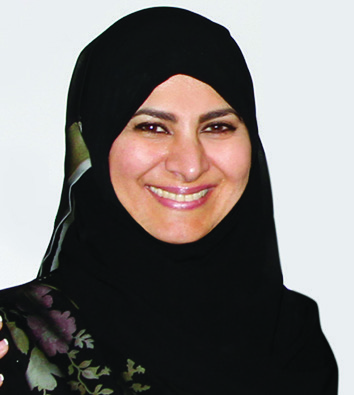
Habiba Al Marashin
is one of the founders of the Emirates Green Building Council (EmiratesGBC), an organization aimed at advancing green building principles and sustainability of the build environment in UAE, and serves on its board as Vice Chair and Treasurer. She was also the co-founder and Chairperson of Emirates Environmental Group (EEG), a pioneering organization based in Dubai in the United Arab Emirates. EEG is also the only organization of its kind in the GCC, with accreditation with two highly esteemed UN bodies, namely the United Nations Convention to Combating Desertification (UNCCD) and the United Nations Environmental Program’s (UNEP) Governing Council. Mrs. Habiba was a board member of the UN Global Compact for two terms (2006-2013). Through her leadership, she established the first corporate social responsibility (CSR) network in the country in 2004 under the name of (Arabia CSR Network)as the only multi-stakeholder forum with local and multinational entities. She is involved in many leading platforms on environment, women and development at the national, regional and international levels. She is a recognized representative and spokesperson for West Asia Arab nations at high ranking international summits and is a recipient of a number of awards for her contribution and achievements in Environmental & Social work.
Emirates Green Building Council
The Emirates Green Building Council (EmiratesGBC) was formed in 2006 to contribute to the United Arab Emirates’ goal to be a global leader for sustainability in the built environment. Globally, EmiratesGBC represents the UAE on the World Green Building Council and supports the MENA Network of Green Building Councils. Locally, the organization serves the industry and its members by:
- Serving as a catalyst for collaboration and a hub for excellence to promote sustainability of the built environment.
- Providing resources and information to those active in the sustainable buildings sector.
- Influencing policy and regulation related to sustainable building environments.
- Providing the link between international green building movements and local industry.
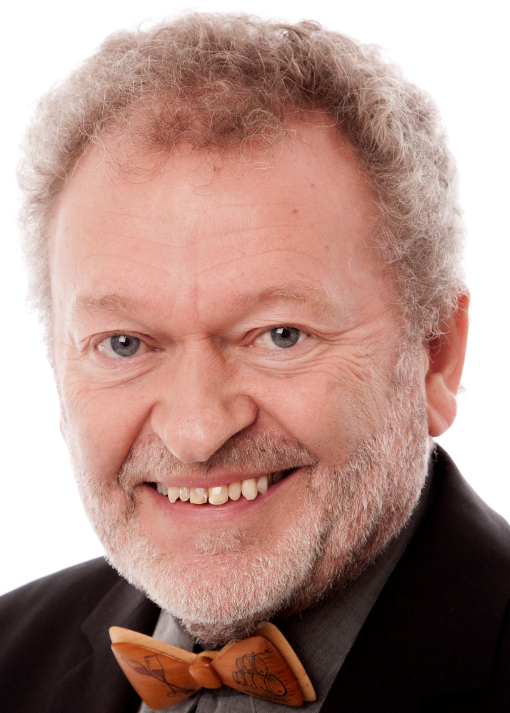
Bjarne W. Olesen
is Professor at the International Centre for Indoor Environment and Energy at the Technical University of Denmark. He has a Master’s degree in civil engineering and Ph.D. from the Technical University of Denmark, 1975 and then was a research scientist at the Laboratory of Heating and Air Conditioning there and product manager at Brüel & Kjaer. He was a Senior Research Scientist at the College of Architecture, Virginia Tech from 1992-1993. Between 1993 and 2004 he was head of Research & Development at UPONOR-VELTA GmbH KG & Co., Norderstedt, Germany, and since then was a full professor in Indoor Environment & Energy at the Technical University of Denmark and past director of the International Center for Indoor Environment and Energy, Technical University of Denmark. He was awarded the Ralph Nevins Award (1982), Distinguish Service Award (1997), Fellow Award (2001) and Exceptional Service Award (2006) from ASHRAE. He is a honorary member of AICARR (Italy), SHASE (Japan) and VDI-TGA (Germany) and was awarded the Chivalric Order of Dannebrog, from the Danish Queen (2012), a Doctor Honoris Causa, Slovak University of Technology and from 2017-18 was the president of ASHRAE. Has published more than 370 papers including more than 80 in peer reviewed journals.
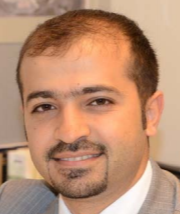
Bashar Mohammad Kassab
is a visionary leader, Facilities Management professional, and keynote speaker bringing over 15 years of professional experience in designing major developments, construction, and facilities management (FM). He is currently an FM Director in Emaar – spearheading the FM operations of Burj Khalifa, the World’s tallest building and Emaar Malls including The Dubai Mall, the World’s largest shopping mall. As a Senior Management member, he has been instrumental in providing solutions to optimize operational performance across a broad range of areas, with focus on mobile technology, new product development, and FM operations’ digitalization. Bashar acquired multiple professional certifications such as Six Sigma Blackbelt, Certified Energy Manager, Certified Lead Auditor for ISO’s 55001, 3100,22301,14001, Reliability Centred Maintenance Facilitator, as well as certificates in strategic planning and thinking.
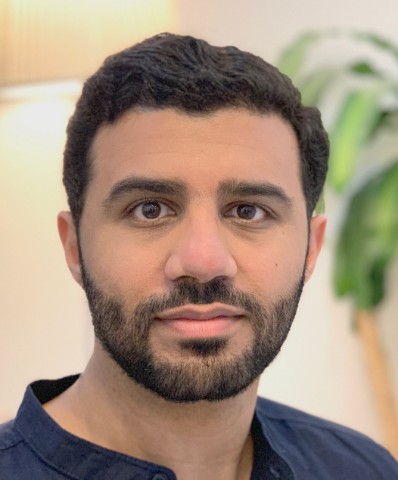
Abdulrahman M. Alshaikh
is Head of Department and an Assistant Professor in the Department of Architecture in the College of Architecture and Planning at Imam Abdulrahman Bin Faisal University (formerly University of Dammam), Saudi Arabia. He completed his doctorate on comfort in, and the design of, homes in Dammam and building on the insights gained now works more widely through education and research to improve the performance of buildings in the region, not least in response to the rising of energy prices and the increases in temperatures in the region of recent decades. His current research and consultations focus on enhancing building performance based on thermal analysis and occupant’s behaviour with the least possible retrofitting on buildings.

Samuel Dominguez Amarillo
is a Vice Dean in the College of Architecture and Professor in the Department of Construction at the University of Seville, Spain. He is a member of the research group TEP-130: Architecture, Heritage and Sustainability of the Andalusian Scientific Research. In his professional career he acts as Expert Consultant on Hi-performance systems for buildings and in the assessment of sustainability and energy efficiency of buildings and their urban environment. He has extensive background as adviser on environmental control for Cultural Heritage, with a wide portfolio of national and international projects.
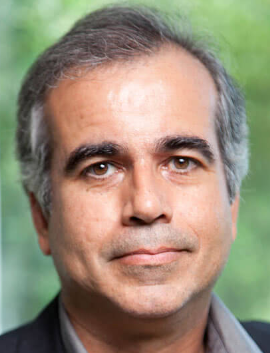
Pablo La Roche
is a Fullbright Scholar, Award winning Professor of Architecture, and Sustainable Design Leader at Callison RTKL. With Architecture and Master’s degrees from Universidad del Zulia and a PhD in Architecture from the University of California Los Angeles, his research interests include passive cooling systems, low energy carbon neutral architecture, and affordable housing. He has published more than 130 papers in conferences and journals worldwide in these topics. His books include the top selling ‘Carbon Neutral Architectural Design’. He has led multiple funded research projects and is an award winning designer, licensed in Spain and Venezuela, and as an Associate AIA and LEED BD+C accredited in the USA. His projects have been published and received awards in the USA, Venezuela, Mexico and Spain. He sits on many national and international committees, has Chaired conferences including PLEA 2016 in Los Angeles and is a member of a range of professional design bodies and charities.
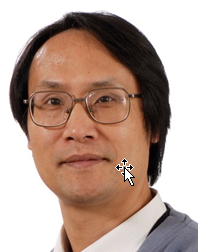
Dong Chen
graduated from Tsinghua University, China in 1987 and completed his PhD degree at Auckland University, New Zealand in 1997. He is currently a principal research scientist at CSIRO Land and Water in Australia. His research interests are physical and numerical modelling of building thermal performance, building energy efficiency, and climate change impact on the built environment. He leads the research, development and maintenance of AccuRate and its Chenath simulation engine, the benchmark building simulation software tool for Nationwide House Energy Rating Scheme (NatHERS) in Australia. He is a member of the NatHERS Technical Advisory Committee.

Craig Farnham
is an associate professor and researcher at the Osaka City University’s Graduate School of Human Life Science. In 2016 he was awarded the Heat-Island Institute International Award for Research Papers for his paper on ‘Evaporative mist cooling of an urban waste-to-energy plant’, sharing his prize with his co-authors. He continues his extensive research on the cooling of outdoor spaces, experimenting both within the university grounds and within the city. His work has gained international followers as the problem of cooling pedestrians in cities and large scale buildings both in Japan and abroad.

Jessica Fernández-Aguera
is a Postdoctoral researcher at Seville University, Department of Construction and member of the research group TEP-130: Architecture, Heritage and Sustainability of the Andalusian Scientific Research, Spain. Her research focuses on energy efficiency, low-energy buildings, airtightness, indoor air quality and ventilation, with special interest in the interaction between environmental parameters, health and thermal comfort in dwellings. He collaborates in the Dynalight project: Efficient design for biodynamic lighting to promote the circadian rhythm in shiftwork centers
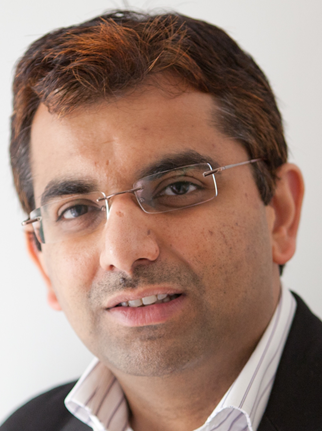
Rajat Gupta
is Professor of Sustainable Architecture and head of Oxford Institute for Sustainable Development (OISD) at Oxford Brookes University. As Principal Investigator (PI) he has won over £10 million in research grants from EPSRC, ESRC, EU, Innovate UK. He has led major interdisciplinary research projects on evaluating the impacts of low carbon communities using action research (£1.14m ESRC/EPSRC energy and communities EVALOC project), scaling up energy retrofits (€3.2million ERDF project on OxFutures), smart storage of solar electricity (£1.2million Innovate UK ERIC project) and integration of renewables in communities (Innovate UK LEMUR project). He is currently PI of a £1.3m EPSRC RESIDE project on residential energy reduction in India, leader of a UN funded project on mainstreaming sustainable social housing in India and co-leader of a Newton Fund project on customising building performance evaluation for India (Learn-BPE). He has completed a number of projects on adaptation of buildings for climate change, particularly for the elderly.
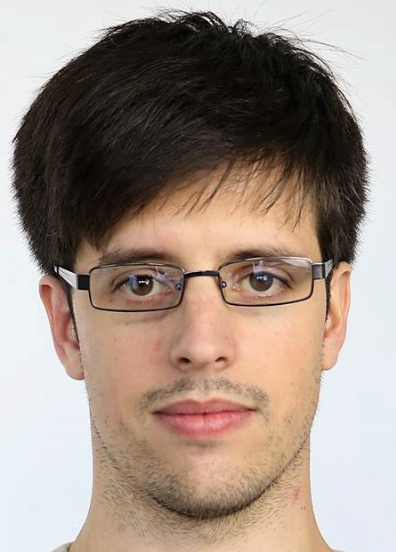
Daniel Fosas
(BA+MArch(Hons), MEng, MSc) is a postgraduate researcher in Architecture and Civil Engineering at the University of Bath. His research focuses on overheating in the built environment particularly in its simulation, evaluation methods, assessment of building features and thermal stress of occupants. He collaborates in the EPSRC projects COLBE and Healthy Housing for the Displaced and has done considerable research in the Jordanian refugee camps and using computer modelling to optimise tent structures in the camps there.
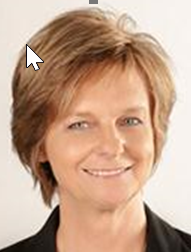
Alana Hansen
Dr Alana Hansen is a Research Associate in the School of Public Health’s Environmental and Occupational Health Sciences Unit. Since completing her PhD on the effects of weather and air pollution on population health in Adelaide, her research has focussed on the health impacts of extreme heat and climate change in vulnerable populations. She uses a mixed methods approach with both quantitative and qualitative methodologies. Dr Hansen’s interests include barriers to adaptation in older persons and the adaptive capacity of migrants and refugees to extreme heat and climate change. Her research involves collaborations with stakeholders in government and non-government organisations and her work has been translated into policy and practice. Her current research focusses on building capacity to curb the public health impact of emerging and re-emerging infectious diseases due to climate change in China.
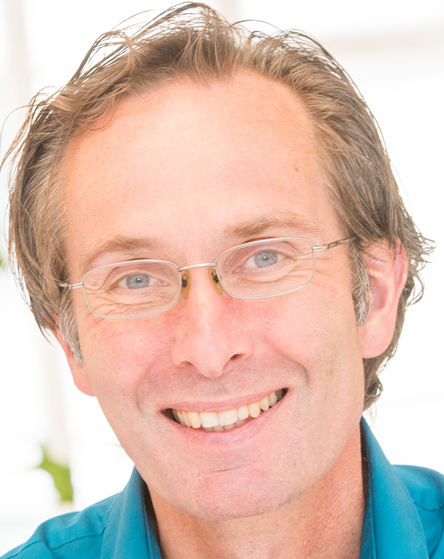
Peter Holzer
Peter Holzer holds a degree in Mechanical Engineering (1994) and a doctorate in Architecture (2009), both at Technical University of Vienna. He works both in industry and academia where he worked in the Department of Building and Environment at Danube University Krems from 1996 to 2012 as research associate then head of department. He still teaches Building Physics and Building Services at the University of Applied Sciences, Campus Wien. Since 2011 he has been Managing Director of the Vienna branch of the IPJ Ingenieurbüro P. Jung, a consultancy office in building physics, indoor comfort and building energy systems and since 2013 is a shareholder of the Institute of Building Research & Innovation, a research entity specialized on sustainability of buildings. In 2014 he joined IEA EBC Annex 62 Ventilative Cooling, holding the position of leading Subtask B – Solutions. His professional work and research activities are dedicated to true sustainability in the built environment, including affordable low carbon technologies for heating, ventilation and cooling, climate-responsive design, adaptive indoor comfort and indoor health.
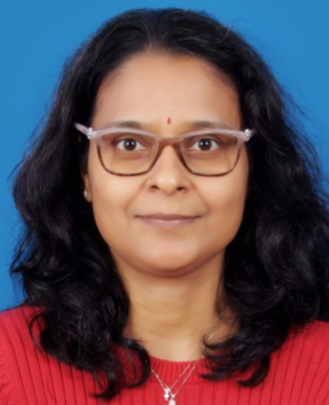
Madhavi Indraganti
was a Fullbright scholar and joined the Department of Architecture & Urban Planning at Qatar University as an assistant professor in Fall 2017. As a Japan Society for Promotion of Science Fellow, she has researched on thermal comfort, clothing insulation, vernacular architecture in Qatar, India, Japan, and Saudi Arabia and USA, working with The University of Tokyo and University of California, Berkeley. She is well published and cited and also a fellow of Higher Education Academy, UK. A licensed architect and pedagogy expert, she has 26 years of teaching, research and professional experience. Prior to joining QU, she was an associate professor at Prince Sultan University in Saudi Arabia. Occupant comfort in offices is the focus of her current research. She currently teaches architectural design methods, ethics, construction management and sustainable design studios.

Risto Kosonen
is a highly published and cited Professor in the Department of Mechanical Engineering, Aalto University, Finland heading his own research laboratory. His research interests include HVAC Technology with particular interests in personalised micro-environment and non-uniform air distribution systems with a view to enhancing boosting comfort locally while reducing energy use and costs and lowering carbon emissions from buildings. He is an editorial member and reviewer for several international reputed journals with member of and affiliations to many related international organisations.
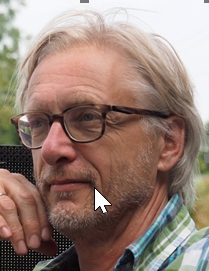
Wouter van Marken Lichtenbelt
is Professor of Ecological Energetics and Health at the School for Nutrition and Translational Research in Metabolism (NUTRIM) at the University of Maastricht in the Netherlands. He leads their research group on Thermophysiology & Metabolism, working largely on individual differences in energy metabolism and the underlying mechanisms. Current work there puts emphasis on how daily environmental conditions (temperature, light) relate to comfort, behavior, long-term metabolic health and prevention of the metabolic syndrome (obesitas, type 2 diabetes and related cardiovascular diseases). His group searches for an optimal mix of different lifestyles and environmental factors to create a healthy sustainable indoor environment.
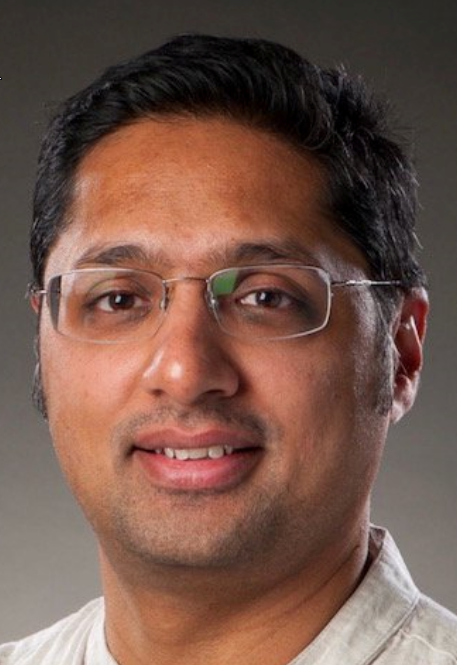
Sukumar Natarjan
is a Senior Lecturer in Environmental Design. Sukumar and the Director of the EPSRC Centre for Decarbonisation of the Built Environment (dCarb). He is also Deputy Director of the Centre for Energy and the Design of Environments (EDEn) with research interests that include: building energy modelling, energy behaviour, smart meter interface design, impacts of climate change on buildings, occupant thermal comfort and health. Sukumar is leading the work on modelling refugee shelters as part of the £1.5M EPSRC Healthy Housing for the Displaced project and is PI on the £1.2M EPSRC Zero Peak Energy Building Design for India project.
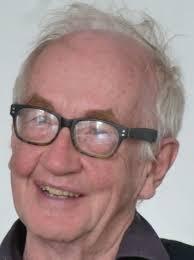
Fergus Nicol
is Professor and Visiting Professor at University College London and Heriot Watt, London Metropolitan and Oxford Brookes Universities. He is internationally known for his work in human thermal comfort, principally the ‘adaptive’ approach and with Professors Michael Humphreys and Susan Roaf and co-author of the leading books and chapters on the subject such as Adaptive thermal comfort: principles and practice, (2012 Routledge) and Adaptive thermal comfort: foundation and analysis (2016). He has co-authored numerous journal articles and other publications including the comfort chapter in CIBSE Guide A. He was a member of the CIBSE task force on overheating in buildings and is the principal author of CIBSE TM52 The limits of thermal comfort, avoiding overheating in European buildings (2013). Fergus convenes the Network for Comfort and Energy use in Buildings (www.nceub.org) and co-chairs the International Windsor Conferences on Comfort (www.windsorconference.com)
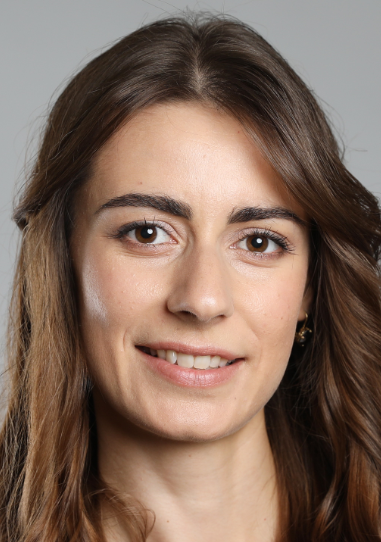
Hannah Pallubinsky
is a Postdoctoral researcher at Maastricht University, Department of Nutrition and Movement Sciences. Her research focuses on human thermoregulation and thermophysiology, with special interest in heat adaptation and the interaction between environmental parameters, health and thermal comfort.

Natalia Paszkiewicz
is a Postdoctoral Research Associate at the Department of Social and Policy Sciences. She is an anthropologist and has over ten years’ experience of work with migrants, asylum seekers and refugees in the UK, Malta, Ethiopia and Djibouti. Natalia has a Master’s degree in Refugee Studies from the University of East London and a PhD in Social Policy from the University of Brighton. She has worked extensively with a range of migrant communities including recently in Bangladesh working with the Rohingyas and also in Jordanian camps looking at issues around the comfort of their occupants.
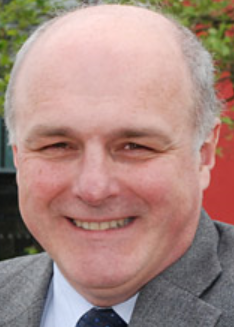
Adrian Pitts
is Professor of Sustainable Architecture at the University of Huddersfield. He leads the Sustainable Environments and Practice research group within CUDAS (the Centre for Urban Design, Architecture and Sustainability) in the Department of Architecture and 3D Design. He has taught environmental and energy efficient design, supervised numerous research projects and research students, and published widely over the last three decades in three different Universities. Cross-disciplinary initiatives have characterised his academic career and he has been involved with many teaching and research activities spanning the fields of: architecture, engineering, planning, environment and landscape, comfort, policy and urban development. His recent work is concentrated largely in China, and the exploration of tent structures for extreme environments.

Hom Rijal
is a Professor at Tokyo City University, Japan. He gained his PhD in Comfort research from Kyoto University and subsequently did several years post-doctoral research with professors Michael Humphreys and Fergus Nicol in Oxford Brookes University, UK. He has widely researched on comfort in a number of building types, concentrating recently on looking at occupied temperatures in Japanese homes and his databases on the subject provide important evidence of comfort temperatures at extremes in ordinary Japanese homes. He recently co-authored a book on ‘Sustainable Houses and Living in the Hot-Humid Climates of Asia’ (2018) showcasing the latest research findings that are useful in the context of designing sustainable houses and living in rapidly growing Asian cities.
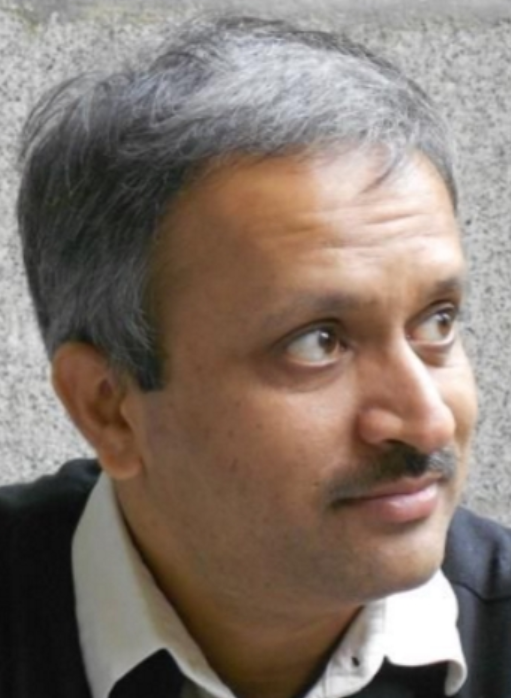
Rajan Rawal
Rajan Rawal is a faculty member at CEPT University. He teaches energy efficient built habitat, energy modelling, energy policy at postgraduate level. His work emphasis is on ‘energy performance of human habitat’ and ‘architectural science education’. Presently, He is Executive Director of “Centre for Advanced Studies in Building Science and Energy” (CARBSE) at CEPT University. Prof Rawal led Indo-US Joint Clean Energy R & D Centre and presently leading Indo-UK project on Energy Demand Reduction and Mission Innovation challenge on heating and cooling in buildings from India side. He is a member of International Energy Agency task 69 on low energy buildings and senior expert at Global Building Performance Network. He serves as Chair of Education at IBPSA World Executive committee. He serves as an executive committee member and board of management at several philanthropic and non-governmental organizations. He is part of the editorial board of two leading journals and has several research papers, book chapters and projects to his credit.
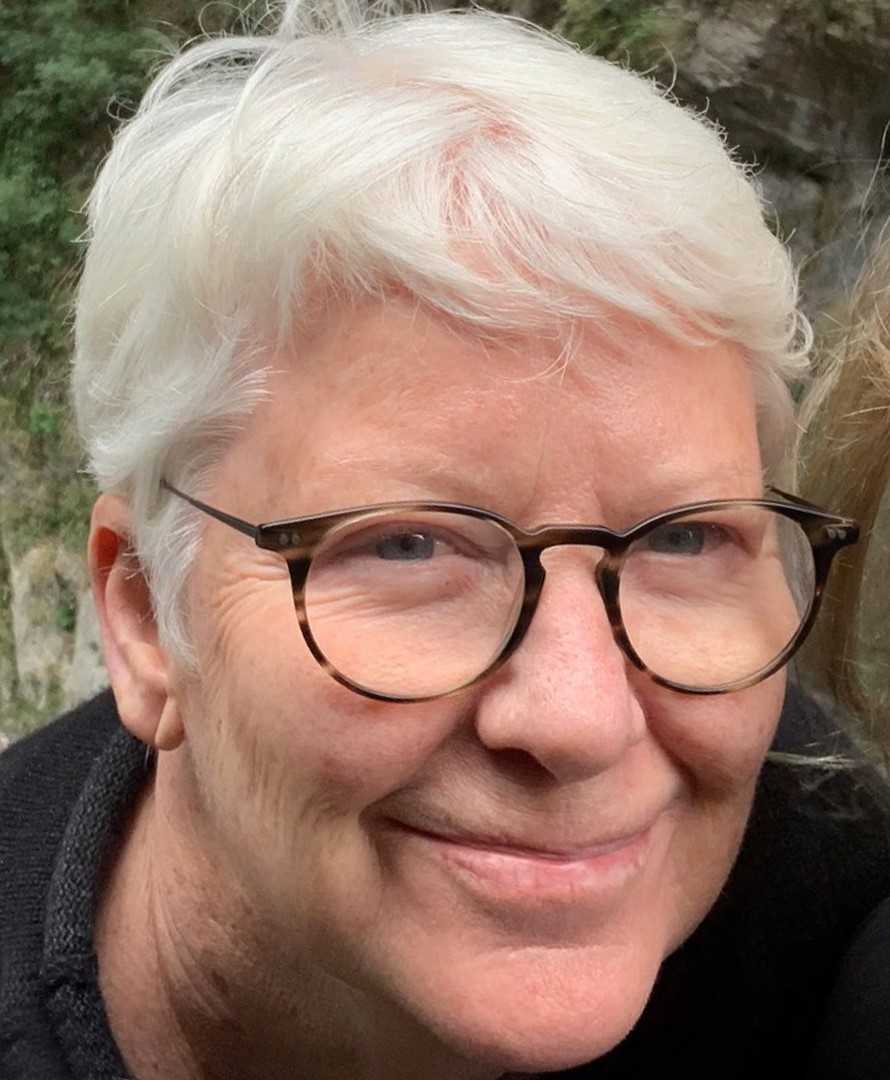
Susan Roaf
Sue Roaf is Emeritus Professor of Architectural Engineering at Heriot Watt University and an award winning author, architect, solar energy pioneer and was an Oxford City Councillor for seven years. Her research covers windcatchers and nomadic architecture in Iran, Mesopotamian archaeology, photovoltaics, low carbon, resilient and sustainable design, material considerations in design and thermal comfort. She is known for her work on solar and her Oxford Ecohouse, resulting in the best-selling book Ecohouse: A Design Guide on the subject. Her other books include Adapting Buildings and Cites for Climate Change and Benchmarks for Sustainable Buildings. How to design a Comfortable Building. She is currently working on the third book in the Trilogy on Adaptive Thermal Comfort written with Michael Humphreys and Fergus Nicol.

Philipp Stern
Philipp Stern studied Architecture at Technical University, Vienna, Austria as well as at Écôle National Superieur d’Architecture de Versailles, France. He graduated in Vienna in 2013. After gathering practical working experience in architectural offices Philipp turned to research: Since 2015 he is junior researcher in the Institute of Building Research & innovation, Vienna. He was strongly involved in finishing the work of IEA EBC Annex 62 – Ventilative Cooling and in preparing Annex 80 – Resilient Cooling
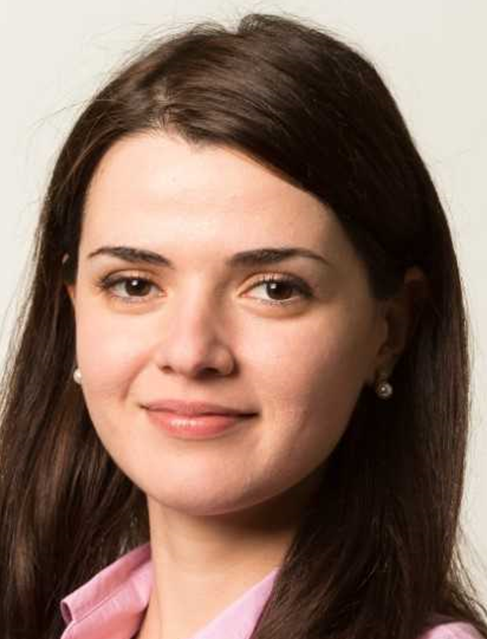
Evangelia Topriska
Dr Evangelia Topriska is Assistant Professor of Building Services Engineering at Heriot Watt University, Dubai Campus. Her research covers Nearly Zero Energy Buildings, renewable hydrogen applications for distributed power generation for the built environment, Urban Heat Island and thermal comfort, Thermo-Electric Generators applications in buildings, weather data analysis and their effect on building energy simulations, distributed solar energy and grid integration. She has worked as a researcher in various European Union Projects about energy efficiency in buildings and she has experience in building energy audits. She sits on the board of the UAE ASHRAE Falcon chapter and on the WIBSE committee of CIBSE UAE.
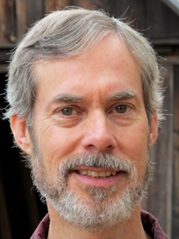
Alex Wilson
is president of the Resilient Design Institute, a U.S. organization working to enhance the resilience of buildings and communities. He is also the founder of BuildingGreen, a highly respected, 30-year-old information company and consultancy focused on sustainable building. Alex is a widely published writer on topics of green building, energy, resilience, and the environment. He served on the national board of the U.S. Green Building Council from 2000 – 2005, and in 2008 he received the organization’s Leadership Award for Education; in 2010 he got the 2nd annual Hanley Award for Vision and Leadership in Sustainability.

Manuel de Arriaga Brito Correia Guedes
gained his PhD from Cambridge University on the subject of Thermal Comfort and Passive Cooling Design in Southern European Offices. He is a practicing architect and Professor at the at the Technical Higher Institute (IST) in Porto in Portugal. He publishes widely and has specialised in the design of Sustainable building and Urban Design and in the Institute is responsible for the disciplines od Environmental Design and Sustainable Architecture at Masters and PhD levels. He has participated in a range of related national and international research and Coordinator of EU cooperation projects with Africa and Asia. He is leader of the current Polar Lodge project testing extreme tent designs in Antarctica.

Hanan Al-Khatri
is a PhD student at the University of Nottingham and a lecturer at the Civil and Architectural Engineering department at Sultan Qaboos University. Her PhD research explores the response of Omani female students towards the thermal conditions of their high school classrooms in Muscat, the capital city of Sultanate of Oman. During her research, Hanan has developed an interest in studying the behaviour of the thermal sensation and preference scales.

Kheira Anissa Tabet Aoul
is Professor of Sustainable Architecture and Chair of the Architectural Engineering Department at the United Arab Emirates University (UAE). Kheira draws from over 25 years of international academic and professional experience in the USA, North Africa and the Middle East. She is engaged in education and practice-based research focusing on advancing the design and execution of a sustainable, socio-culturally sensitive built environment in hot climatic zones. High Performance buildings and human factors in the built environment are her major areas of expertise, research and publication. Her recent interest focuses on the optimum integration of the sustainability agenda in architectural higher education of the Gulf countries. Kheira holds a PhD in Building Science from Sheffield University (UK), was a Fulbright scholar at Arizona State University (USA). She is also a LEED Accredited Professional.

Matthaios Santamouris
is Professor of High Performance Architecture at UNSW, and past Professor in the University of Athens, Greece. Visiting Professor: Cyprus Institute, Metropolitan University London, Tokyo Polytechnic University, Bolzano University, Brunnel University and National University of Singapore. Past President of the National Center of Renewable and Energy Savings of Greece. Editor in Chief of the Energy and Buildings Journal, Past Editor in Chief of the Advances Building Energy Research, Associate Editor of the Solar Energy Journal and Member of the Editorial Board of 14 Journals. Editor of the Series of Book on Buildings, published by Earthscan Science Publishers. Editor and author of 14 international books published by Elsevier, Earthscan, Springer, etc. Author of 320 scientific articles published in journals. Reviewer of research projects in 29 countries including USA, UK, France, Germany, Canada, Sweden, etc.
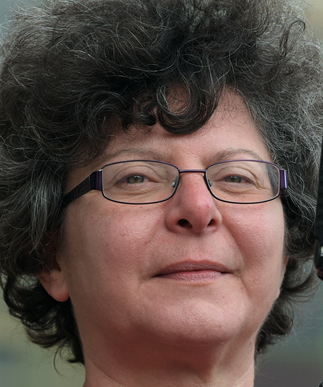
Maria Kolokotroni
is Professor in the Department of Mechanical and Aerospace Engineering, College of Engineering, Design and Physical Sciences at Brunel University London, leading the Resource Efficient Future Cities team in the Institute of Energy Futures. She qualified in Architectural Engineering at the National Technical University of Athens and University College London and subsequently worked on building ventilation and low energy cooling at the University of Westminster the Building Research Establishment, UK. She is a Chartered Engineer, Fellow of CIBSE and member of ASHRAE and the Institute of Energy. She has worked on many projects on Energy Efficient Technologies, Nearly Zero Energy Buildings, Retrofit, Low Energy Cooling and Ventilation, Urban Heat Island and Climate Mitigation Strategies in buildings and urban areas.

Peter Hickson
is a Professional Master Builder in NSW, Australia. He has 31 years specialising in designing and constructing homes of raw unfired earth and promoting earth buildings through training, education and practical example. He was a founding member of the Earth Buildings Association of Australia, EBAA and has now been its President for three years. He believes homes built of earth have always provided one of the most sustainable means on building available. He is currently working to get a wider appreciation of the merits of mud construction into the Australian regulatory and policy environment, not least through expanding the comfort zones employed in the mandatory rating schemes in use there.
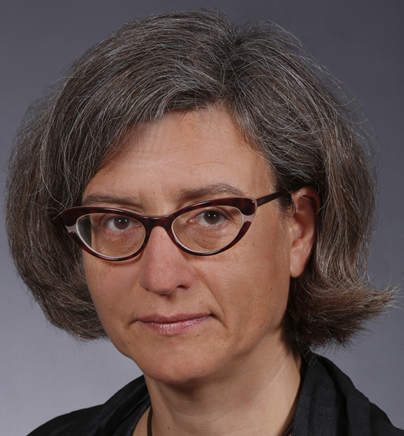
Ulrike Passe
is Associate Professor of Architecture at Iowa State University (ISU), USA and a licensed architect in Germany. She teaches sustainable design and environmental technologies and is director to the Center for Building Energy Research (CBER). She leads the interdisciplinary ISU Sustainable Cities team integrating human-building-microclimate interactions into urban energy models for resilience. In 2015 she published “Designing Spaces for Natural Ventilation: an Architect’s Guide (Routledge) with Dr. Francine Battaglia; and in 2009 led the ISU team to design and build the Interlock House for the US DOE Solar Decathlon, now transformed into an NSF funded community research lab.
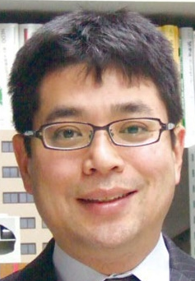
Ryozo Ooka
is a professor of Institute of Industrial Science, the University of Tokyo. He got Bachelor degree at Kyoto University in 1989 and PhD degree at the University of Tokyo in 1997. Since 2009, he is in the present position. His major research field is urban and building environmental engineering. Especially, he is interested in urban energy system, energy efficient building, indoor and outdoor thermal comfort, atmospheric environment and so on. He has published about 200 peer reviewed research papers. He also works for a lot of academic societies including board of directors of International Association of Building Physics, Architectural Institute of Japan, Society of Heating, Air-conditioning, and Sanitary Engineers of Japan, and others.
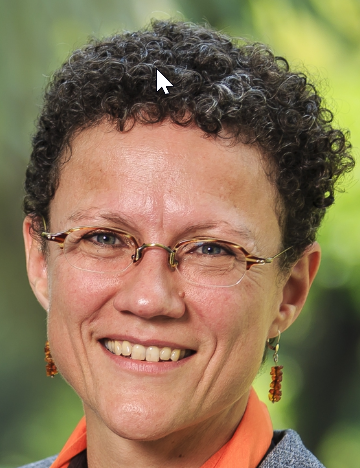
Runa Hellwig
is Professor of Building Climatology at Aalborg University, Denmark. Over more than 20 years and working at several renowned research institutions as Fraunhofer Institute for Building Physics, Technical University of Munich and the National University of Singapore, she has focussed her research on finding solutions for a sustainable built environment in collaboration with research and industry partners. Her expertise comprises the area of indoor climate, occupant perception, building physics and energy efficiency in architecture. She contributes to professional and governmental advisory boards at national as well as international level, with a focus on effectively transferring research results into practice.
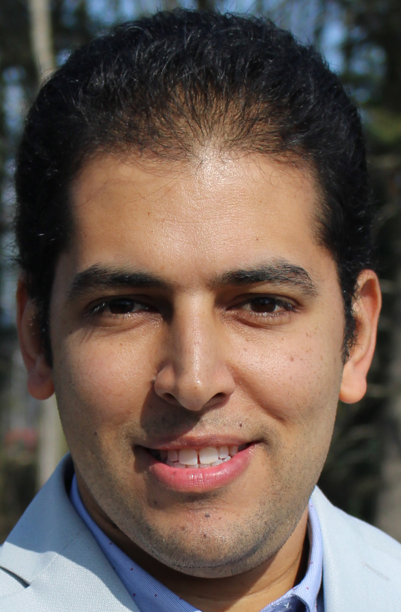
Shady Attia
is an Assistant Professor of Sustainable Architecture & Building Technology at Liège University in Belgium. He is specialized in the design decision-support of high-performance buildings. He is heading the Sustainable Building Design Lab that he created in 2014. Dr. Attia is the author of the book Net Zero Energy Buildings with more than 60 peer-reviewed publications. Also, he is an active member in ASHRAE and IBPSA and different International Energy Agency committees. Dr. Attia is an active member and Faculty Member of the US Green Buildings Council and helped with the certification of several LEED projects.

Kathryn Janda
is a problem-based scholar who studies energy demand innovations, organizational change, and non-domestic buildings. She is a Principal Research Fellow in the Energy Institute at University College London and a Visiting Research Fellow at the Environmental Change Institute at Oxford University. She has worked in the Energy Analysis Program at Lawrence Berkeley National Laboratory (USA), served as an American Association for the Advancement of Science Environmental Policy Fellow at U.S. Environmental Protection Agency, and been an Assistant Professor of Environmental Studies at Oberlin College (USA). She holds degrees in electrical engineering, English literature and energy & resources.

Gráinne McGill
is a Researcher at the Mackintosh Environmental Architecture Research Unit (MEARU), Glasgow School of Art. She is a lecturer and module coordinator for the MSc course in Environmental Design and Analysis in Architecture and is involved in supervision at MSc and PhD level. Gráinne is a Committee Member of the UK Indoor Environments Group and coordinator of the AHRC funded HEMAC network. She is a member of the International Society of IAQ (ISIAQ and has acted on a number of Scientific Review Committees and chaired sessions at major International Conferences.
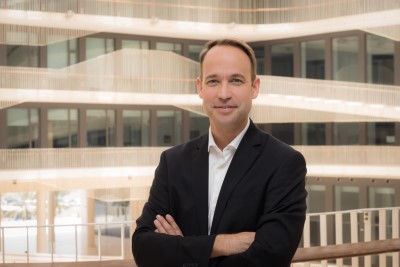
Nikolaus Knebel
is an architect and professor at the German University of Technology in Oman (affiliated to RWTH Aachen). After studying in Berlin, Singapore and Delft, he worked for Rem Koolhaas in Rotterdam, Toyo Ito in Tokyo and for the Bauhaus Dessau Foundation / GIZ in Addis Ababa, founded an office in Berlin and received several awards for built works in Germany. He is the team leader of the ongoing EcoHaus project, an award-winning pioneering zero-energy-building that received the “Best Sustainable Building Middle East & North Africa Interior And Architecture Design Award in 2015”. For the 2016 and 2018 PLEA (Passive Low-Energy Architecture) conferences he was a member of the scientific committee.